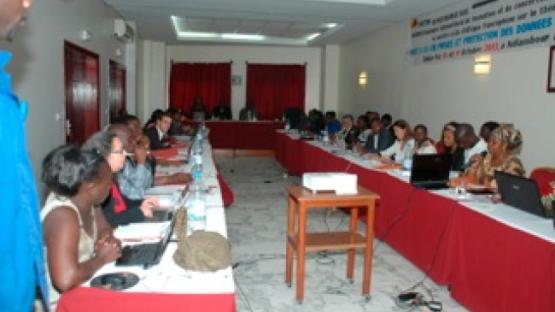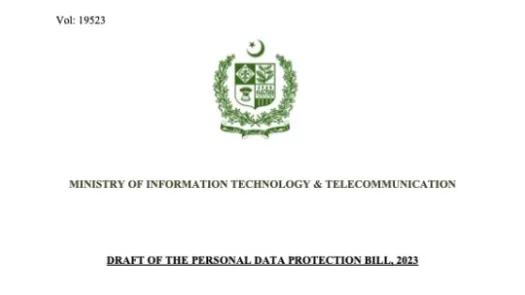Francophone West African Civil Society Organisations Demand Better Privacy, Personal Data Protections

The argument that human rights are a Western concept and that privacy is not a concern for the developing world was rejected last week in a two-day civil society seminar held in Dakar, Senegal.
More than 30 members of West African civil society participated in the seminar on privacy and data protection, organised by Jonction with the support of the Senegalese Commission for Data Protection. Participants denounced the shortcomings of governments and the private sector in upholding, protecting and promoting the right to privacy and personal data. The seminar was held in collaboration with Privacy International and IDRC as part of Privacy International’s “Privacy in the developing world project”.
The rationale
New technologies that affect the right to privacy are being increasingly deployed in developing countries and particularly in Africa. Initiatives to protect privacy and promote data protection, however, have so far been piecemeal. Several Francophone African states have begun to develop legal and institutional frameworks around the collection and use of personal data, defined as “the information that permits the direct or indirect identification of a physical person”, to prevent and punish unjustified infringements of the right to privacy. Burkina Faso and Senegal have each set up Data Protection Commissions; in Niger a draft privacy and data protection law is being discussed. But in Togo and the Democratic Republic of Congo no such laws are in place. At the sub-regional level, the Economic Community of West African States (ECOWAS) has drafted legislation on the protection of personal data, which is yet to translate into national legislation by all ECOWAS member states.
The seminar
The seminar was aimed at building the capacity of civil society organisations (CSOs) in Francophone Africa to understand privacy issues and advocate around the right to privacy and the protection of personal data. The ultimate aim was to develop a collaborative action plan on how to further engage at the national level and regional level.
In addition to CSO representatives, participants included journalists, lawyers, judges and national authorities mandated to protect fundamental human rights from across Francophone Western Africa. The presence of two UN West Africa regional offices, namely the UN Office for Western Africa (UNOWA) and the UN Commissioner for Human Rights (OHCHR) also emphasised the need to integrate existing field actors working on issues related to privacy - including transnational security, state surveillance, and human rights – into the discussion. The presence of a wide array of actors enabled a holistic, enriched, stimulating and encouraging level of discussion.
An “états de lieu” of the legal and institutional framework in Francophone Africa was carried out through geographical and thematic presentations. An overview of constitutional protections of the right to privacy in Francophone Africa complemented by country-specific presentations on Senegal, and Morocco, provided the foundation to understand and identify the legislative and institutional shortcomings. These shortcomings permit abuse not only by the state, but also private actors and entrench impunity resulting from the on-going infringement of the right to privacy.
Thematic presentations and discussion reflected the advanced quality of reflection and analysis of the impact of daily uses of technology on the fundamental right to privacy such as biometric ID cards visas and passports, SIM card registration, digital electoral lists, social media interactions, the development of thematic jurisprudence, etc. These discussions illustrated the multidisciplinary and complex nature of the right to privacy and the need for a holistic and multi-stakeholder approach for the promotion and protection of the right to privacy and personal data. Participants placed a particular emphasis on the cultural dimension of privacy. Understanding how privacy is understood in different cultures is crucial to developing appropriate policies and legislation.
Conclusion and key recommendations
This seminar was the first step in establishing a regional dialogue in West Africa on the right to privacy and data protection. While participants embraced the support of external actors including PI and the CNIL, the recommendations they developed reflect the need for local and regional partners in West Africa to have ownership of the process to ensure the development of sustainable objectives.
At the conclusion of the seminar, the participants put forward the following recommendations addressed at an array of actors:
1. The creation of national authorities to protect privacy and personal data in countries where none exist;
2. The carrying out of awareness-raising actions targeting the public on issues related to the protection of privacy and personal data
3. The development of a partnership framework for the protection of privacy and personal data by bringing together States, international organisations, NGOs, civil society, the private sector, the educational and research, etc.
4. The creation of synergies between authorities specifically dedicated to the protection personal data and national human rights commissions;
5. Support of the establishment and transposition of ECOWAS’s texts on personal data;
6. Strengthening of independent privacy and personal data protection national authorities by providing sufficient budgetary support and training of personnel;
7. The reinforcement and updating of personnel in the legal sector (judicial police officers, magistrate, bailiffs, etc) on issues related to personal data protection and the specifics of legal procedure related to ICT and all the actors involved;
8. The adoption of the draft African Convention on Cyber Security;
9. The realisation, in the short term, of research on the state of protection of privacy and personal data in African states;
10. The elaboration and/or translate essential documents related to the protection of privacy and personal data;
11. The updating of understandings of the protection of personal data in legislation regarding online media;
12. The updating of understandings of the protection of personal data in the provision of e-services by government;
13. The inclusion of privacy issues in the development of standards around infrastructure, planning and housing construction in residential zones;
14. The involvement of the Francophone Association of Data Protection Authorities (AFAPDP) in future activities;
15. Representation of Privacy International in Africa or the creation of network of partners.
Next steps
Building on the momentum generated by the seminar, Privacy International will continue to facilitate action in the region through its local partner, Jonction, as well as through establishing new partnerships, including with civil society organisations, legal professionals and UN institutions.
In the coming weeks, Privacy International will publish a brief on the protection of the right to privacy and personal data in Francophone West Africa. Be sure to check back for more.
More on the seminar:
Sud Online
Press Afrik



